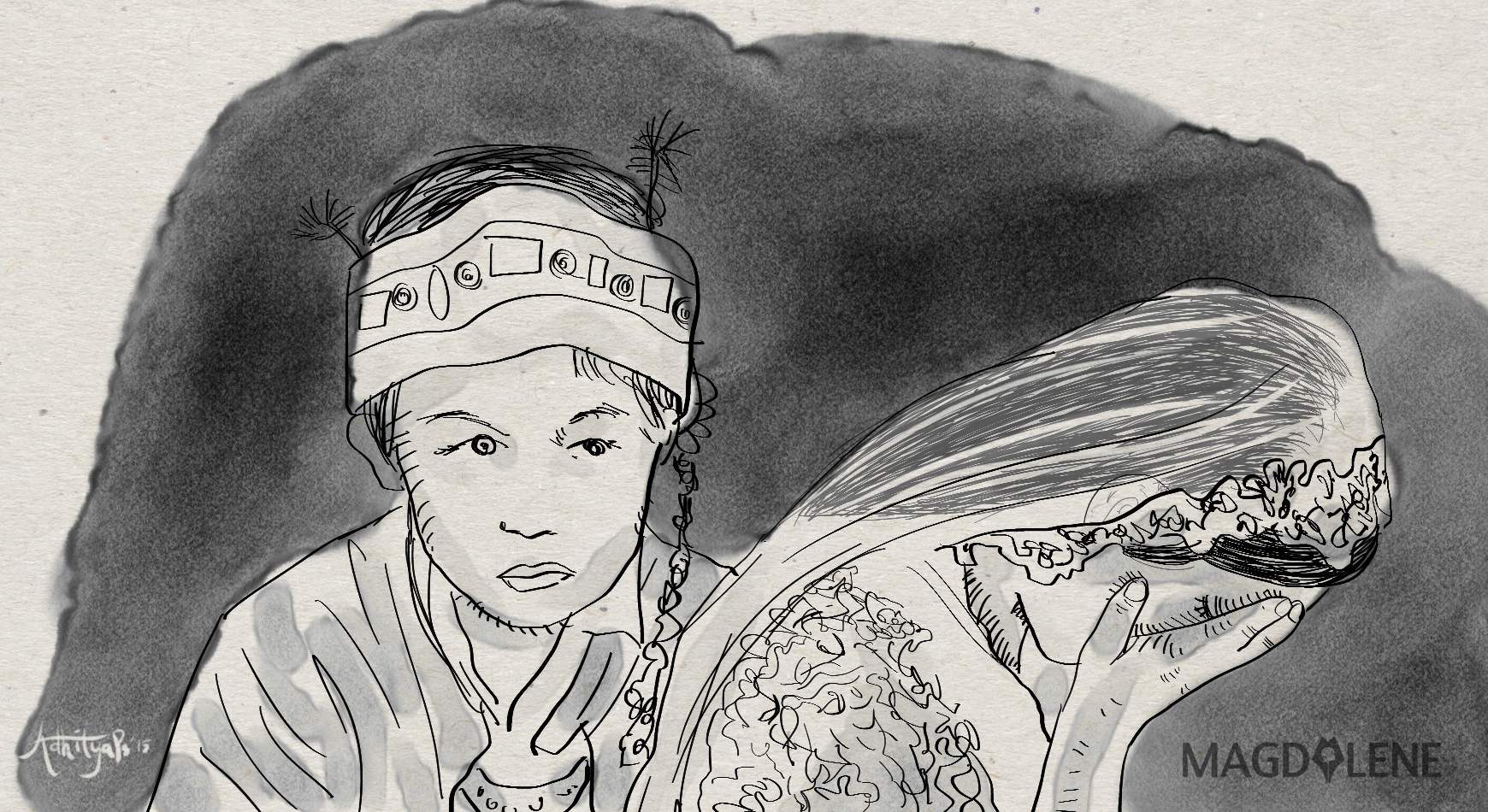The Constitutional Court (MK) yesterday rejected a petition to raise women’s minimum age for marriage, further evidence that religious-based patriarchy is still resilient if not stronger than ever in Indonesia.
A panel of seven judges ruled against a judicial review of two articles in the 1974 Marriage Law, which currently sets the minimum age of marriage for women at 16, and men at 19. Only one judge, the sole woman in the panel, expressed a dissenting opinion.
The Court argued that changing the age requirement to 18 for both sexes was not guaranteed to reduce divorce rates, or to solve social, health and economic problems. The judges said that sometimes 18 years might be considered too old in certain cultures.
“The Court has seen that the argument for a judicial review is not reasonable,” Constitutional Justice Arief Hidayat said while delivering the verdict on Thursday.
This is another loss in the struggle to reform discriminatory laws in Indonesia. On the same day, the Court also rejected another judicial review filed by law students at the University of Indonesia on the Marriage Law that has made it nearly impossible for couples of different religions to marry.
The staunchest defense for the current minimum age is the Indonesian Council of Ulema (MUI), which argued during the hearings that it protects the youth from the negative impact of pornography.
Lawyer Ade Novita, who is the Campaign Manager for Koalisi 18+ that supports the judicial review, told Magdalene: “I’m disappointed. I felt like I was actually at the Religious Court, not the Constitutional Court. The MK has failed to uphold its duty to change laws that violate the rights of children.”
Child marriage is a serious issue in Indonesia, where one in six girls wed before their 18th birthday. Child marriage causes a sudden end of their childhood and perpetuates a cycle of poverty that is extended from one generation to the next. The existing law cites women can marry at 16, and even younger with the permission of local officials. Many parents easily obtain permission from their neighborhood heads to marry off girls even younger than 14.
In a statement issued following the verdict, Koalisi 18+, a collection of legal reform organizations and women’s and children’s rights advocacy groups, said the decision showed the Constitutional Court care more about regulating morality than making sure that the Constitution is upheld.
“We’re not only disappointed by the decision, but also by the quality of the arguments they use and the fact that they approve of child marriage in Indonesia,” the coalition said.
The decision continues the legal uncertainty about children. Under the existing law on the protection of children, which was revised in 2014, a child is identified as someone under 18 years old.
The Coalition of Indonesian Women said Court’s decision is a setback as it perpetuates discrimination against women, particularly female children, failing to protect their rights to live, grow and participate in society.
“Child marriage robs children of their rights to education and to participate in what?. It contributes hugely to the high rates of maternal mortality and infant mortality, and perpetuates the impoverishment of women,” it said.
A child marriage often abruptly stops a woman from accessing education, keeping them in a cycle of poverty. Child pregnancy also exposes the expectant mothers to the risks of hypertension, pre-eclampsia, anemia and malnutrition, a major contribution to malnourished infants and children with stunted growth in Indonesia.
Koalisi 18+ urged the Parliament to revise the 1974 Law, to take these facts into consideration, and to implement strategic policies to end the practice of child marriage.
*Read here about Parliament's refusal to change legislation on sexual violence.








Comments